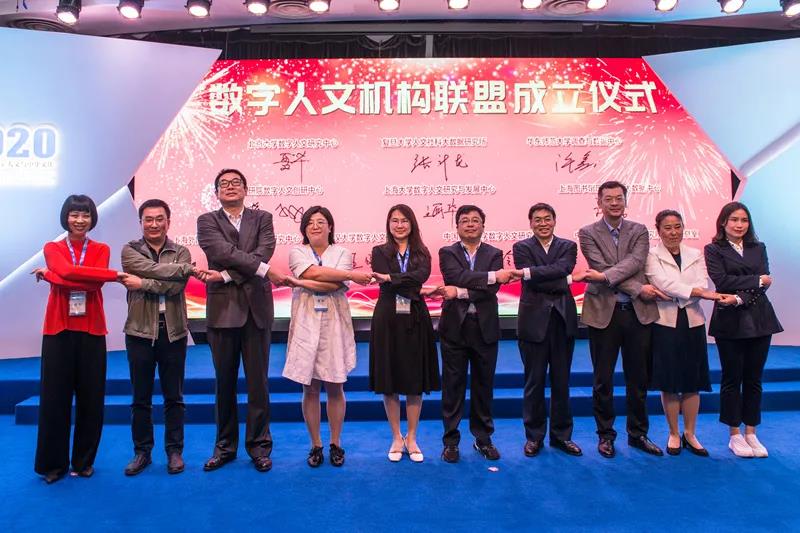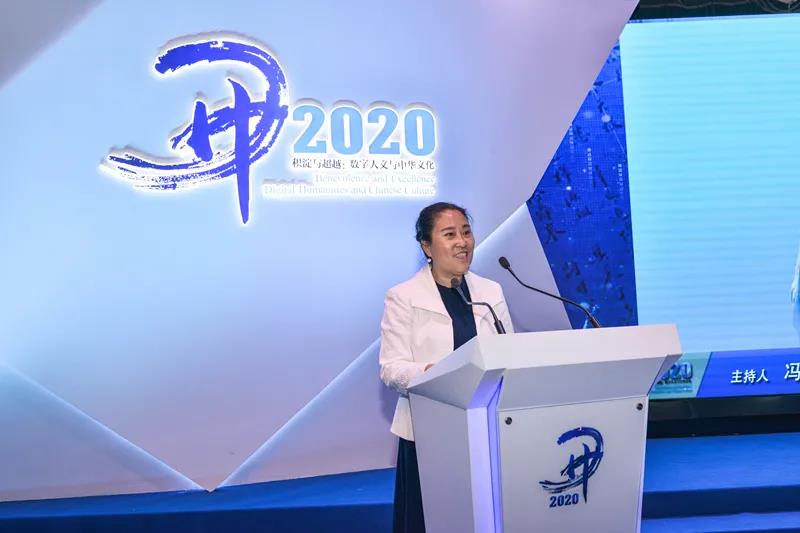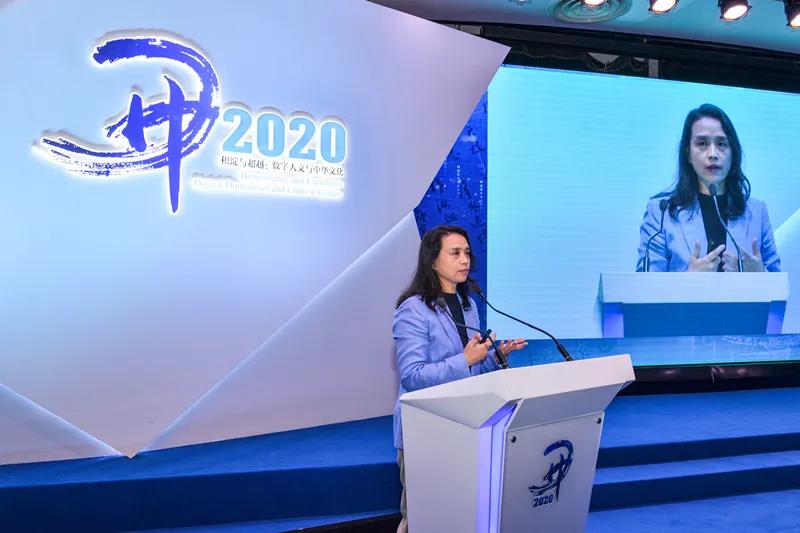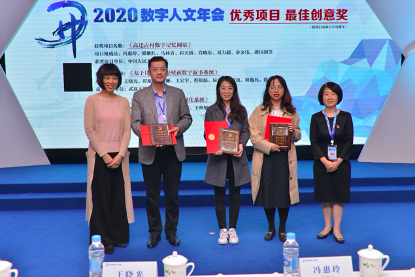
Nov. 26, 2020
The 2020 Digital Humanities Annual Conference was successfully held by Shanghai Library from October 20 to 21, 2020. Under the theme of ” Benevolence and Excellence: Digital Humanities and Chinese Culture”, scholars and practitioners gathered and explored the boundaries, connotations, characteristics, value, and applications of digital humanities in the context of Chinese culture.
In the opening ceremony, the Digital Humanities Institutional Alliance was formally launched by ten sponsors, which includes the Digital Humanities Research Center of Renmin University of China (RUC). The Center Director Professor Huiling Feng participated in the inaugural ceremony.

The first section of keynote speech was chaired by Professor Huiling Feng. Professor Lan Peng from the School of Journalism and Communication of RUC delivered the first keynote speech on the topic of “The Application of Artificial Intelligence in News Production”, expounding the intelligentization of news production process consisting of information collection, processing, integration, verification, and distribution. She insisted that artificial intelligence technology can improve content production capacity in the field of news production. It embodies the core connotation of “Digital Humanities” which solves the humanities problem by digital methods.


Professor Yuenan Liu, the Dean of the School of Information Resource Management of RUC, was invited to participate in the expert debate on digital humanities infrastructure in the morning of October 21st. Professor Yuenan Liu argued that it was reasonable for the library, archives and museums to occupy a relatively high proportion in the process of building digital humanities infrastructure, for that their services can enable the digital humanities infrastructure capture good openness. The functions of digital humanities infrastructure will surpass the humanities field and extend to the field of scientific data. The value of digital humanities infrastructure is reflected in the interconnection, linking and reuse of data. She believed that archives scientists should actively take part in digital humanities and promote the development of digitization and contextualization. The concept of contextualization naturally fits with the principles of archives management which emphasizes backgrounds correlation.

The conference presented awards for 2020 outstanding projects and papers in the afternoon of October 21st. Professor Huiling Feng’s team from SIRM at RUC won the Best Creative Award of the Year. The team led by Professor Bin Zhang from SIRM at RUC was awarded the second prize of 2020 Outstanding Paper.

The Digital Humanities Annual Conference is building a grand stage for the stakeholders of Digital Humanities to share, reflect and communicate, and stimulating the development of digital humanities field through new theories, methods, and practices.
- Faculty from the School of Information Resource Management attended 2023 Annual Meeting of the International Electrotechnical Commission’s Smart City System Committee
- Faculty and Students of the School of Information Resources Management participate in the 2023 ICA International Congress on Archives
- The 20th China Information Resources Management Forum and the Inaugural Meeting of the Autonomous Knowledge System Alliance for Information Resources Management Discipline in China were successfully held
- The international publication of papers from the School of Information Resource Management (SIRM) at Renmin University of China, by teachers and students since June 2022
- Vice President WANG Yi visited the School of Information Resource Management for investigation
- Dr. Liang Jihong Lectured Online in Special Training Camp Series of Digital Memory
- Symposium on Community Informatics (CI) in Digital China was held by SIRM
- Associate Professor Rony Medaglia from Copenhagen Business School Gave A Cutting Edge Lecture: Digital Transformation in Government
- The International Frontier Teachers’ Lecture on the Theory, Principles and Methodology of ISO Terminology Standard Formulation was held successfully
- The 2019 Working Conference of Research Center for Humanistic Beijing was successfully held


